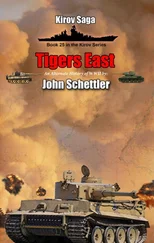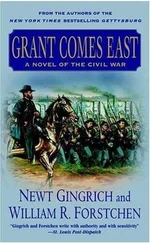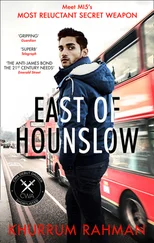Boyle Coraghessan - East is East
Здесь есть возможность читать онлайн «Boyle Coraghessan - East is East» весь текст электронной книги совершенно бесплатно (целиком полную версию без сокращений). В некоторых случаях можно слушать аудио, скачать через торрент в формате fb2 и присутствует краткое содержание. Жанр: Старинная литература, на английском языке. Описание произведения, (предисловие) а так же отзывы посетителей доступны на портале библиотеки ЛибКат.
- Название:East is East
- Автор:
- Жанр:
- Год:неизвестен
- ISBN:нет данных
- Рейтинг книги:5 / 5. Голосов: 1
-
Избранное:Добавить в избранное
- Отзывы:
-
Ваша оценка:
- 100
- 1
- 2
- 3
- 4
- 5
East is East: краткое содержание, описание и аннотация
Предлагаем к чтению аннотацию, описание, краткое содержание или предисловие (зависит от того, что написал сам автор книги «East is East»). Если вы не нашли необходимую информацию о книге — напишите в комментариях, мы постараемся отыскать её.
East is East — читать онлайн бесплатно полную книгу (весь текст) целиком
Ниже представлен текст книги, разбитый по страницам. Система сохранения места последней прочитанной страницы, позволяет с удобством читать онлайн бесплатно книгу «East is East», без необходимости каждый раз заново искать на чём Вы остановились. Поставьте закладку, и сможете в любой момент перейти на страницу, на которой закончили чтение.
Интервал:
Закладка:
The reporters came in the evening, and he experienced his one moment of weakness, the moment in which he wavered and came close to abandoning his resolve. They wanted his story and for a moment he wanted to give it to them, to rub their long noses in it, for a moment he imagined that story appearing in the newspapers and on TV, and somewhere, somehow, stirring Doggo from his slumber, and he imagined his father coming to his rescue like a cowboy on a horse. But it was stupid. Foolish. The burned-out core of a dream—ashes, that was all it was. The deputy held the reporters in the hallway while they fired their questions. Hiro looked up at the clamor of voices, and he turned his head away.
And then Ruth came. She was there in the chair beside the bed with the long white legs that had captivated and enslaved him and she was a reporter too. He looked into her eyes and saw that she didn’t know him at all. She swore she hadn’t betrayed him—it was Saxby, the bōifurendo, the butter-stinker: he should have known!—and he softened, almost broke. But she wasn’t his Rusu, she didn’t care, not really. She was playing another role, using him as she’d used him before. He told her he was tired. He told her goodbye.
What Ruth didn’t know, what the attorney didn’t know or the butter-stinker at the door or the nurse either, was that Hiro had a plan, that he wasn’t down and defeated yet: he would escape them all, and he knew it and drew strength from the knowledge. They’d fed him the typical things, the Amerikajin Jell-O, the peach halves, the macaroni and cheese, but they hadn’t given him chopsticks, hadn’t given him a fork or a knife. They gave him a spoon, a poor pitiful thing not three millimeters thick. But it was rigid and cold and it would serve the purpose. He hid it under his pillow.
He waited for night. For the long pulsing dimly lit hours when the nurses tread with a lighter foot, when the stabbings and shootings and gang fights taper off and the terminal patients settle in for their grim solitary vigil. This was the hour when the hakujin guard, like the guards before him, would close his eyes, for just a minute …
Yes. And throughout the day, when they left him to himself, when the guard at the door followed a pair of legs and buttocks down the hall or let his eyes go slack with a dream of food or sex or violence, when the nurse was changing bedpans or doing her nails or crouching over a tuna-paste sandwich in the nurses’ lunchroom, Hiro had been honing the cold stiff handle of his spoon against the concrete wall behind his bed. Just a stroke at a time. Swish. Swish, swish, swish. It was the hardest steel and it made the softest, most loving whisper. Yes. And now it was a spoon no longer: it was a shiv, a blade, a samurai’s sword.
There was plenty of time, he told himself, no need to rush. Do it right. Do it with honor and dignity and elegance. He sat up in bed and braced himself against the wall. His hair was a mess, he knew it, and he regretted it. And his skin too—he wished he’d thought to ask Ruth for a bit of powder or rouge, anything to give him a little color. But he’d been sick, starved, hunted and abused: what could they expect? He wetted his fingers and ran them through his hair, again and again, until it lay flat. The guard sat in a chair just outside the door. His shoulders were slumped and his head propped up against the doorframe. If he wasn’t asleep, he might as well have been.
What was it Jōchō had said?— In a fifty-fifty life or death crisis, simply settle it by choosing immediate death. Fifty-fifty. It was a joke. If only it were fifty-fifty, if only he had that much optimism, if only he had the foolish serenity he’d attained in the moment of his plunge into the oily black Atlantic. Ninety-five, he thought, ninety-five to five, all stacked the wrong way. It was a small matter, wasn’t it?
He honed the blade once more, a deadly whisper, steel against concrete. While we live, death is irrelevant; when we are dead, we do not exist. There is no reason to fear death. A small matter. He studied the back of the guard’s head, the arm that hung limp in the muted light from the hallway, and then he drew in a breath, lifted the thin cotton hospital gown to expose his hara and felt for the place, for the kikai tanden, for the spirit awaiting release. He held that breath and turned the blade, turned the shiv, the sword, to his flesh. One beat of the heart, two, and then he drove it in with all the strength he had.
It was like a punch, a terrible hammering blow, but worse, far worse, hot and invasive, a pain like nothing he’d known: he’d swallowed molten lead, burning lava, he was nothing but sweat and a brain. And a will. He drove deeper and he couldn’t stand it; he slashed across, dragging the blade, hacking, and his arm locked with the shock of it. Again and again, forcing himself, digging deeper, on the edge of blacking out. And then he was giving birth, his own pale intestines bulging at the hole he’d torn in himself, the heat and the pain and the limp still arm of the guard still framed in its pitiful light … and the smell rose to his nostrils then, the heat of his blood and the corrupt rank fecal stench of the mud, the mud that had cradled him and brought him down …
And then suddenly he felt his hara lift—it wasn’t actual anymore, it wasn’t wet and hot and heavy in his hands, it was as light as air. He was going, but not to the city of Mishima and Jōchō, not to the city of his ojisan and his mother and all the generations of samurai and kamikaze and the pure unimpeachable Yamato race. No. He was going to the City of Brotherly Love: there, only there.
He closed his eyes. He was already home.
Acknowledgments
A portion of this work first appeared in Rolling Stone.
The author would like to thank the following for their assistance: The John Simon Guggenheim Memorial Foundation; the University of Southern California; Tom Rohlich; John McNally; Rob Jordan; Kevin McCarey; David McGahee; Marie Alix; Clarence, Sarah and Dodds Musser; and Len Schrader.
A Note on the Author
T.C. Boyle is the bestselling author of Water
Music, Budding Prospects, World’s End for which he
won the PEN/Faulkner Award for Fiction in 1988,
The Road to Wellville, The Tortilla Curtain, Riven Rock,
A Friend of the Earth and After the Plague. His fiction
regularly appears in The New Yorker, GQ, Playboy and
Esquire. He now lives near Santa Barbara in California.
www.tcboyle.com
BLOOMSBURY
Also available by T. C. Boyle
Talk Talk
Dana sits in a courtroom with her legs shackled as a long list of charges is read out. But there has been a terrible mistake – she didn’t commit any of these crimes. She and her lover Bridger set out to clear her name and find the person who is living a blameless life of criminal excess at her expense.
The Inner Circle
In 1939 on the campus of Indiana University, a revolution has begun. The stir is caused by Alfred Kinsey, a zoologist who, behind closed doors, is a sexual enthusiast of the highest order and as a member of his ‘inner circle’ of researchers, freshman John Milk is called on to participate in experiments that become increasingly uninhibited…
Tooth and Claw
This collection of short stories finds Boyle at his mercurial best. Inventive, wickedly funny, sometimes disturbing, these are stories about drop-outs, deadbeats and kooks. With a unique deftness of touch and a keen eye for the telling detail, Boyle has mapped the strange underworld of America.
Читать дальшеИнтервал:
Закладка:
Похожие книги на «East is East»
Представляем Вашему вниманию похожие книги на «East is East» списком для выбора. Мы отобрали схожую по названию и смыслу литературу в надежде предоставить читателям больше вариантов отыскать новые, интересные, ещё непрочитанные произведения.
Обсуждение, отзывы о книге «East is East» и просто собственные мнения читателей. Оставьте ваши комментарии, напишите, что Вы думаете о произведении, его смысле или главных героях. Укажите что конкретно понравилось, а что нет, и почему Вы так считаете.











